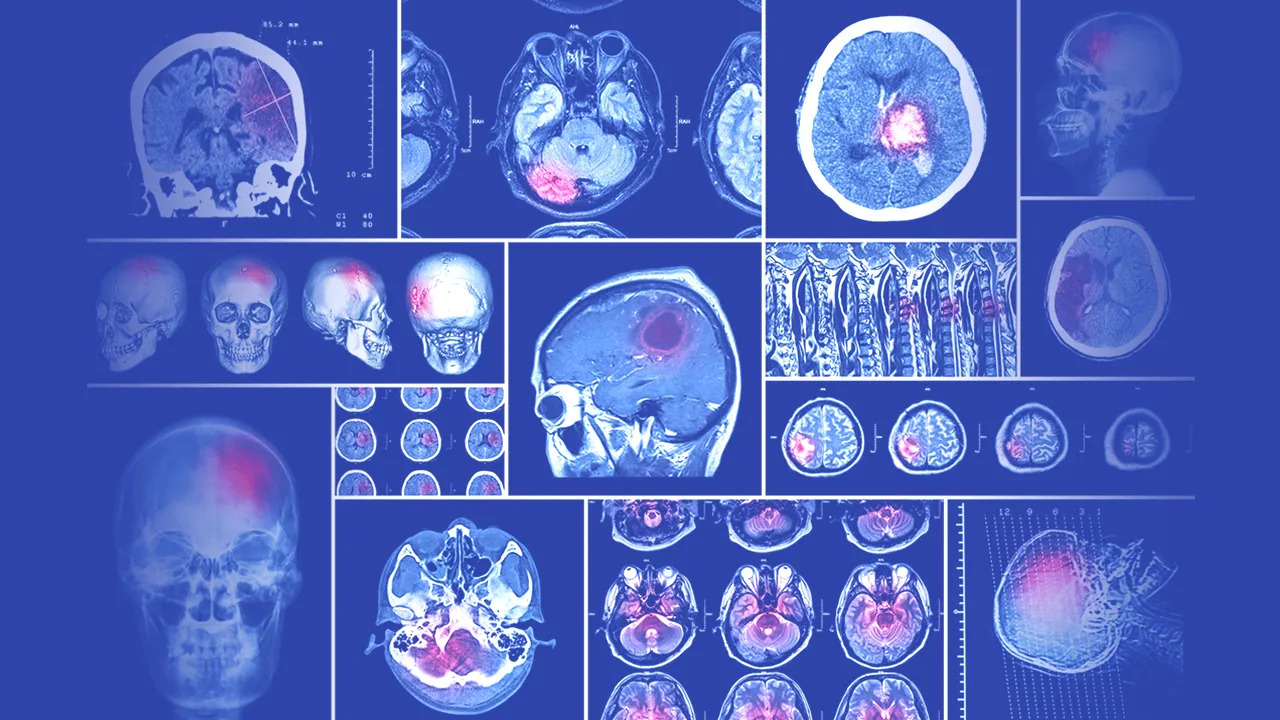Brain herniation syndromes are a group of neurological disorders that occur when the brain tissue is displaced from its normal position due to increased pressure within the skull, leading to compression of vital structures within the brain, resulting in severe neurological deficits and even death. Brain herniation syndromes are a medical emergency that requires prompt diagnosis and treatment to prevent irreversible brain damage.
There are three main types of brain herniation syndromes, which are:
• Subfalcine herniation: This occurs when a part of the brain, usually the cingulate gyrus, is displaced under the falx cerebri, which is a fold of the dura mater that separates the two cerebral hemispheres.
• Transtentorial herniation: This occurs when a part of the brain, usually the temporal lobe, is displaced through the tentorial notch, which is a narrow opening in the tentorium cerebelli, a fold of dura mater that separates the cerebrum from the cerebellum.
• Tonsillar herniation: This occurs when the cerebellar tonsils, which are located at the base of the brain, are displaced through the foramen magnum, which is the opening at the base of the skull.
Brain herniation syndromes are usually caused by an increase in intracranial pressure, which can be due to various factors, such as:
• Traumatic brain injury: can cause bleeding or swelling within the brain, leading to increased pressure.
• Brain tumors: Tumors can grow within the brain, causing compression of surrounding structures and increased pressure.
• Cerebral edema: This condition in which fluid accumulation within the brain increases pressure.
• Hydrocephalus: This condition has an abnormal accumulation of cerebrospinal fluid within the brain, leading to increased pressure.
The symptoms of brain herniation syndromes depend on the type and severity of the herniation. However, some common symptoms include the following:
• Headache: This is usually severe and persistent.
• Nausea and vomiting: This can be due to increased pressure on the brainstem, which controls the vomiting center.
• Altered consciousness: This can range from confusion to coma.
• Seizures: These can occur due to irritation of the brain tissue.
• Abnormal breathing: This can be due to compression of the respiratory center in the brainstem.
• Dilated pupils: This can be due to compression of the oculomotor nerve, which controls the size of the pupils.
The diagnosis of brain herniation syndromes is usually based on a combination of clinical examination and imaging studies, such as:
• Computed tomography (CT) scan: This can show the presence of bleeding, swelling, or tumors within the brain.
• Magnetic resonance imaging (MRI): can provide more detailed images of the brain tissue and surrounding structures.
• Intracranial pressure monitoring: involves placing a catheter within the brain to measure the pressure.
The treatment of brain herniation syndromes depends on the underlying cause and severity of the herniation. However, some common treatments include:
• Medications: These can include diuretics to reduce cerebral edema, anticonvulsants to control seizures and pain medications.
• Surgery: This can involve removing a tumor or hematoma or decompressing the brain tissue by removing a portion of the skull.
• Ventilation support: This can be necessary if the patient cannot breathe independently.
• Monitoring: This involves closely monitoring the patient’s vital signs and neurological status to detect changes.
Brain herniation syndromes are a serious medical condition requiring prompt diagnosis and treatment to prevent irreversible brain damage. The symptoms of brain herniation syndromes can be severe and life-threatening, including headache, nausea and vomiting, altered consciousness, seizures, abnormal breathing, and dilated pupils. The diagnosis of brain herniation syndromes is usually based on a combination of clinical examination and imaging studies, such as CT scans and MRIs. The treatment of brain herniation syndromes depends on the underlying cause and severity of the herniation and can include medications, surgery, ventilation support, and monitoring.

Comments are closed.